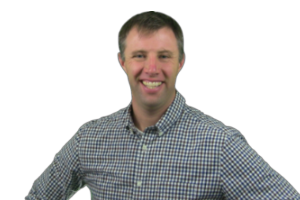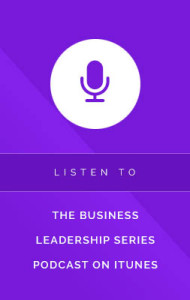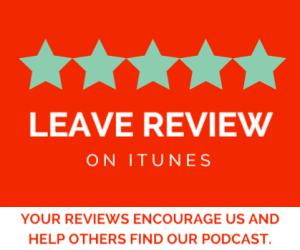BLS Interview with Scott Beebe, Part 1

In his Business Leadership Series Derek Champagne, CEO of The Artist Evolution and author of new marketing book: Don’t Buy a Duck, speaks with some of the best and brightest in business leadership to gain some insight into their unique ideas and keys to their successes.
In this edition of the Business Leadership Series, Derek speaks with guest Scott Beebe. Scott is the producer and host of the Business On Purpose podcast and is actively involved in the business Mastermind program.
Listen to the full podcast here.
Derek: Welcome to the Business Leadership series, created to inspire you to become the best leader that you can be. I’m your host, Derek Champagne. Our guest today is Scott Beebe, a strategist, trainer, business coach, and producer and host of the Business On Purpose podcast. Scott, thanks for joining us today.
Scott: Derek, I’m excited to be here.
Derek: I’ve gotten the opportunity to get to know you a little bit just from some of the groups that we’re in on Facebook. I’m excited about some of the things that you’re doing, I think they’re of great value to our listeners and our readers. So tell me where are you calling from today?
Scott: Derek, I hate to say this out loud, but I’m in the upstairs room of our house where our home office is, and I’m looking out at some of the most beautiful marshland country. The tide’s coming in and there are about four 200 year old live oak trees with Spanish moss hanging from them. So I’m right outside of Hilton Head, South Carolina in little town called Okatie, or Bluffton. Some people may have heard of Bluffton as well but yes, right here in the low country.
Derek: Very nice, what’s the vibe in that town?
Scott: Quirky, bizarre, very artistic. It’s git rings with the name of your business and your platform. If anybody’s ever been to Hilton Head, we’re like the opposite of Hilton head, even though we’re right over the bridge. Very quirky, lots of artistic, interesting, quirky, whimsical talent here.
Derek: And what brought you to there?
Scott: You know about- well it was back in 2007, we had just planted a church ironically enough, in Fort Worth, Texas. A mutual friend had submitted my name to a guy to ask if I could come help him plant a church in this quirky little town. I told him, “Of course I won’t go do that”, we’re going to stay right here in Texas. He was very persistent and a few months later, we decided to come out here and I wanted to go back into business anyway because I missed it. It was an incredible platform for life change and so we did that, and I went to back to work for Pfizer and we helped him start a church out here in Bluffton.
Derek: So you have got an interesting early life. Can you share with us a little bit about your background?
Scott: I’m really not very athletic. I grew up and I played sports as a kid, I did the marching band for a while, and in my final – my 11th grade – year I got cut from the baseball team. So I thought, “Well, I’ve got to do something”, so I went on for track. I was terrible at it, but the coach for the track team was also the coach for the football team. He was like, “Hey, if you want to come out for football, not that you’re any good, but if you just want to come out and be on the team, then you can do that”. He was right, I wasn’t very good. I barely lettered, in fact I had to lobby for the letter. Then I went- I tried to be a long snapper, my last year of high school, my only football year of high school, and I wasn’t even good enough to be a long snapper.
My freshman year at the University of South Carolina, my roommate came home, he and I played together- well he played, I didn’t, but we were on the team together in high school. He was also manager for the Carolina football team. He came home and he said, “There’s only one deep snapper on the whole team, you ought to see if you can dust off the rusty skills you had to begin with”. So he would bring a football back to the room every night. The hallway in our dorm room was only 16 yards- you only needed 15. So I snapped in the hallway, literally every night, for a semester.
Wade was, on the other end, he was so patient and kind and I went out for the team, long story short. The first time I ever threw a football, the first time I ever handled a football in a live football game, was against LSU in Baton Rouge, nine times. And in 1994, actually, we beat them by a point. It wasn’t because of me, but it was fun to be there. Pouring down rain, 80,000 fans. I went on to get a scholarship my last two years while I was there and became the star, so it was a fun ride.
Derek: That’s an amazing story. So tell me about Business On Purpose.
Scott: It really was birthed out of a collective, I would say 16, 17 years. Derek, as you well know, you get to different stages of your life and what you’re doing is really more of a culminated effect of what you’ve done. And that’s really what the Business On Purpose platform is, because when I graduated Carolina, I had a pretty profound spiritual transformational experience in college. I didn’t levitate or anything like that, although I heard that may be kind of fun. I went to seminary out of college because a mentor of mine had really pushed me to start going deep into my faith. I wasn’t very disciplined, I was a horrible reader, and I was really not a very good student. Frankly, I didn’t enjoy school at all growing up, not just college. I just didn’t enjoy the process.
I went to seminary to be in a disciplined environment so I could grow deeper in my faith. While I was there, I was working in business because I loved business. I was going to go into motor sports business actually. I had done some internships at Shell Motor Speedway during college. So I was going to go into that, but ended up going to seminary for a time, graduated there in ’01, started in theology, and when I came out, I went to work for Pfizer. Two of the coaches that had been fired were my coaches because we weren’t very good at the time, so they had just gotten out of coaching all together. They went to work for Pfizer and so I had an in there. So from the time I graduated, Derek, until today, I’ve been on this kind of explorative journey- actually, my wife and I and our kids. About half of our time has been in for-profit, kind of mega multinational corporation, the other half of it has been in very small, micro-niche, faith based non-profit settings.
So I’ve been able to take all of that experience- I’ve got loads of world class training from Pfizer and then I’ve got loads of real pragmatic ‘on the ground, in the weeds’, kind of reality training from these other areas that I was in, and I was able to bring all of that together. I had a friend, about a year and a half ago- he’s a civil engineer and just a really sharp guy. We were talking one day and he said, “You know Scott, one of the things you are really good at it, is you help me uncover things that I cannot see”. And I thought, “You know, I’m not good at much but I do feel like I am good at that”.
We had a pretty traumatic experience about a year ago, with a non-profit that I was overseeing as the executive director. We had a pretty tough, unfortunate board meltdown and, because of that, they ended up dissolving my position. Literally at a meeting because the majority of the board was having to step down and they were responsible for hiring me. They didn’t feel comfortable in leaving that position when they couldn’t be there for oversight and also because of some of the other things that had gone on. So February 27th, Derek, of last year, I got on a plane out of Dallas and I was unemployed for the first time in my life.
A couple of buddies who owned businesses here, I told them, “I’m going to into business and here is what I think I can do for you. Will you be kind to me and just let me get started? If this is something that you need, can you help me kind of get off the ground? Help me with pricing, help me with service offerings” and, golly, they were so gracious and I was cheap.
[laughter]
So that was a good mix and to this day, we’ve been able- basically, what we do, is we help small business owners get their lives back, frankly. And we do that by helping them articulate their vision, mission, and value story. We also help automate and build their back end systems and processes for their entire business, so they can spend less time kind of working in the weeds of their business, and begin spending more time as a pilot in a cockpit of the plane and fly that.
Derek: Tell me, what kind of thing is your target dealing with? What are some of the pain points that they are experiencing when you come in and you recognize and are able to identify and then help to solve?
Scott: The number one thing, Derek – and you can build all the greatest processes in the world and you know this as a business owner – is if you don’t have the vision or the destination articulated of where you ultimately want to go, the best processes will do nothing for you. You could have a fantastic, fantastic athletic human being and if they end up somewhere different other than athletics, it really didn’t matter. So that is the number one thing, as crazy and broad as it sounds, that I find that is missing in the life of the small business owner. That is, most of them do not have any idea of where ultimately there want this ship to go.
So being able to articulate that out first, we basically run them through a framework of four steps. But we don’t do it because it’s magical four steps, we do it because over the last year, and I would even say over the last 16 years, this is what I’ve seen in organizational life. Small businesses are missing a vision story. They’re missing road maps on how to get to that ultimate destination, so we lock in on three things. We want to lock in on how you delegate and what you delegate, we want to lock in on what are the systems of that business, that’s another road map we put together. Every human body’s got 11 systems. Well, your business has the systems too. Let’s identify those and then, finally, that third road map is the implementation, Joe Calloway says that, “Vision without implementation is hallucination” and so we’ve got to articulate what implementation looks like.
The third phase of that is what we call the organizational infrastructure because, even though they may have written down on a napkin somewhere what their organizational chart looks like, it doesn’t work for them. It would work but it just doesn’t work for them. So we create the organizational chart 2.0 and because we do it in Google Drive it’s all hyperlinked to the job roles, which are then hyperlinked to the processes, so everything is connected at that point. So I would say to your question, to kind of put it down into four steps. We help them to articulate their destination, help them build their road map, handcraft the road map to get to that destination, and then develop the organizational infrastructure and process that they can work on every day and begin to delegate that out to other people.
Derek: You know, you and I work with a lot of the same types of businesses and these are smart entrepreneurs. They have a vision for the product or the service, but a lot of times they get lost wearing so many hats, and I think that’s where some of you value comes in. Helping them find that vision, that road map, and implement it. Tell me some practical application for someone that’s listening to this and might be dealing with that right now. What’s something they can take away where they can pause and say, “Is this something that I’m going through? Is this something that will be of value to me? What do I need to look at if I’m in that category?”.
Scott: There is a question that I think is a powerful, but simple question to ask. And that is, when you’re in your business, I want you to think, “This next task that I’m about to do. Is this the last time that I could possibly do this task? Ever, in my life?”. I call that- it’s a fundamental question in what I call the systems mindset. When you start to think with a systems mindset, instead of thinking, “alright, let’s talk your world”, in the world of marketing. A lot of small businesses, probably, Derek, hire you because they don’t need more to think about marketing, they just want you to do it. And so here’s the challenge, is if you hire somebody for marketing or for sales or for operations or for any other discipline in the business, you don’t want to abdicate something.
Derek, to you or to me or to anybody else who’s going to coach them or consult them on anything, but that’s typically what a business owner does because they just don’t want to deal with it. So we abdicate accounting, we abdicate marketing, and we abdicate operations. Instead, what we want to do is we want to partner together to handcraft something for you, and what’s more important than the idea, the quote “silver bullet” or the “smoking gun”, in terms of, “Man, how are we going to be able to crush more marketing? No, no, no, no, why don’t we do this? Let’s just pick one because they all work pretty well if they’re implemented, and then let’s create a killer process to get that thing done”.
I mentioned I live on the coast, at the end of the day, Derek, I don’t care what kind of boat I’m in. All I care is that it gets me on the water and gets me back, that’s what I really care about. So you can sell me a quarter million dollar boat or you can sell me a one thousand dollar boat. Does it get me to that end of the river so I can fish a little bit and get back home? So it’s more of about the process of “does the motor run?”, than it is about the slickness of the boat that I’m in.
Derek: We share similar philosophies. In my approach to marketing, as well as making sure that what we’re doing is practical and is going to actually help you meet your objectives and not just flash. It’s something that’s absolutely necessary to meet your goals. So I think that’s important and I like that approach.
Scott: Derek, can I give you a real pragmatic example?
Derek: Please.
Scott: – Of how we’ve done that in the world of marketing. I mean, I’m a small business owner, you’re a small business owner, you and I both have to market our businesses. So we not only get to help other people, but we actually have to practice what we preach. Well here’s what we found with marketing that’s really helped us. I bit the bullet about six, eight months ago and we brought a virtual assistant on our team, Abby from the Philippines, who’s been just fantastic. One of the things that I delegated to her – I didn’t abdicate, I delegated because I trained her on it with a video tutorial – is I delegated my social posting. Now, it sounds like a small thing, but I think any small business owner will go, “Oh no, that is not a small thing, that kind of stuff drives me crazy because I don’t want to do it all the time”.
Well here’s what we’ve done is we’ve basically taken a couple of tools, Buffer and Trello, and we’ve said, “Alright, I can come up with content. That’s going to have to come from me because it’s unique from the small business owner but when I have the content, where do I put that content?”. I think that’s the real challenge, is where do I put that content? So what we decided to do is take that bits and bites of content, use Trello, and on Monday morning I go on in and input Trello. Then, Abby get’s all of that and she goes and inputs it in Buffer, schedules it out, and makes sure it’s all hyperlinked. She does everything that she knows how to do, but I know how to do too, it’s just going to take me a lot of time to do it and I don’t want to do that. So that’s a real pragmatic process that we use, just to take something simple like social media process off the table.
Derek: That’s an example of one of the things you do in all of your road mapping and implementation?
Scott: That’s right.



